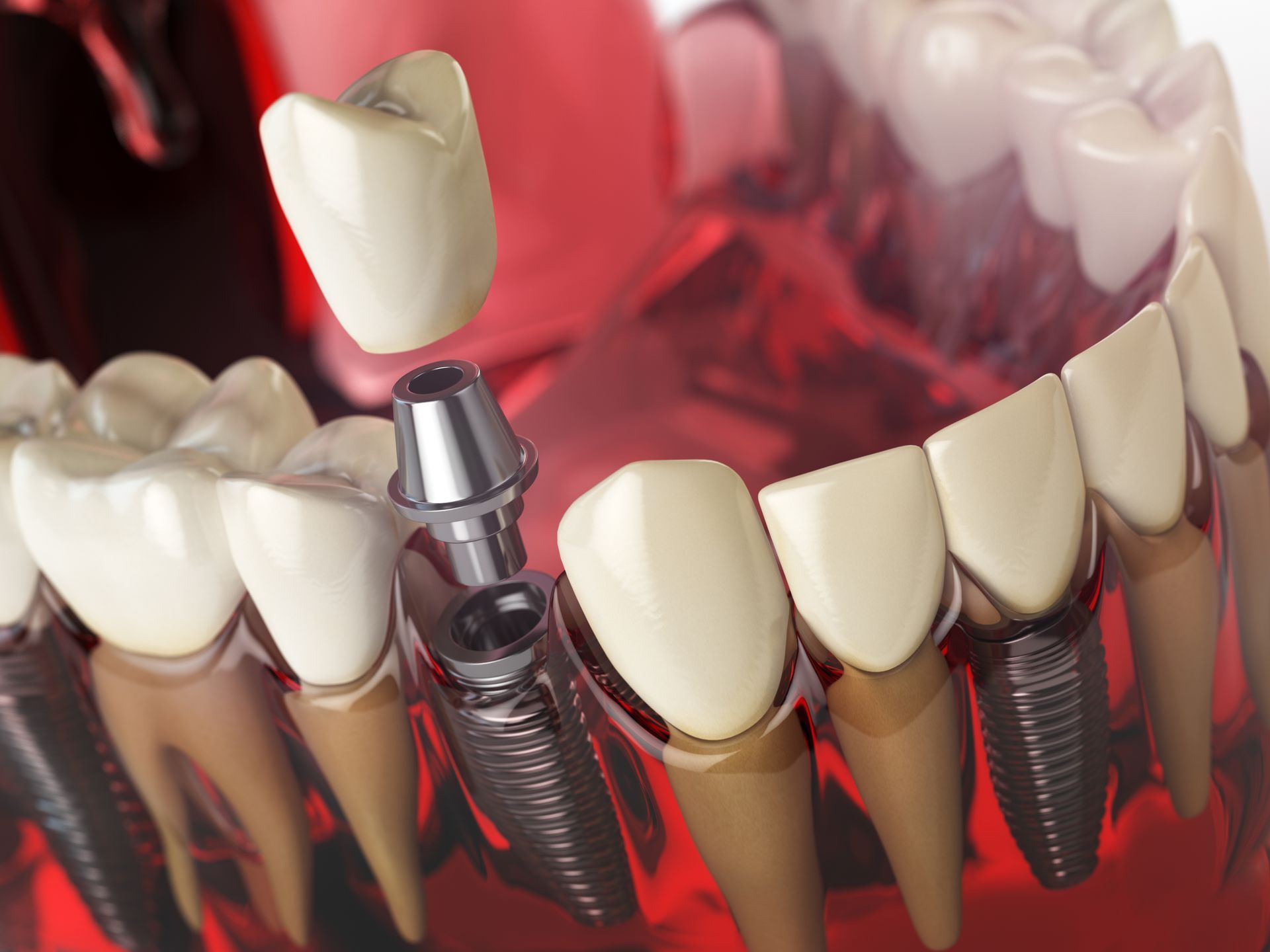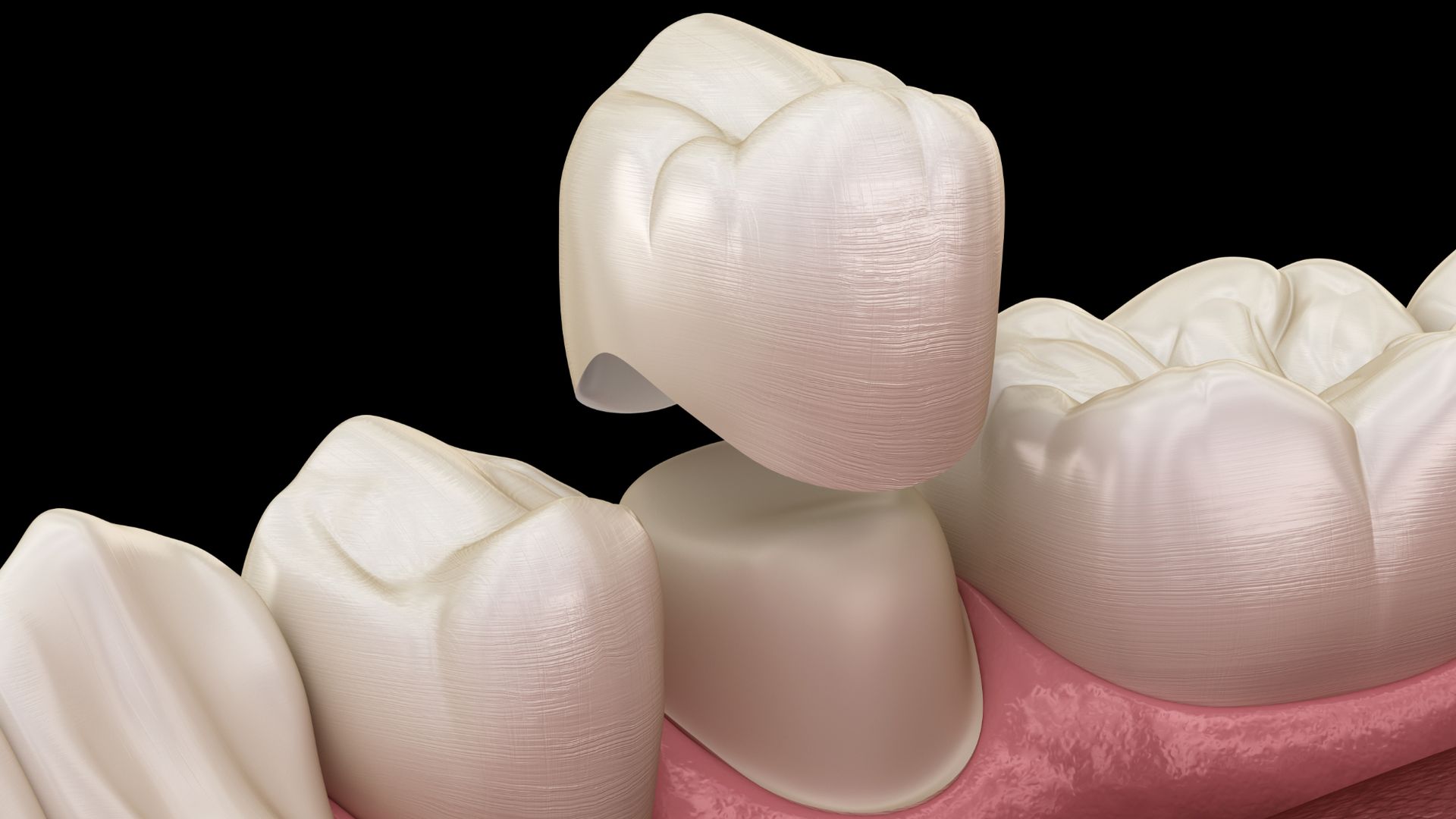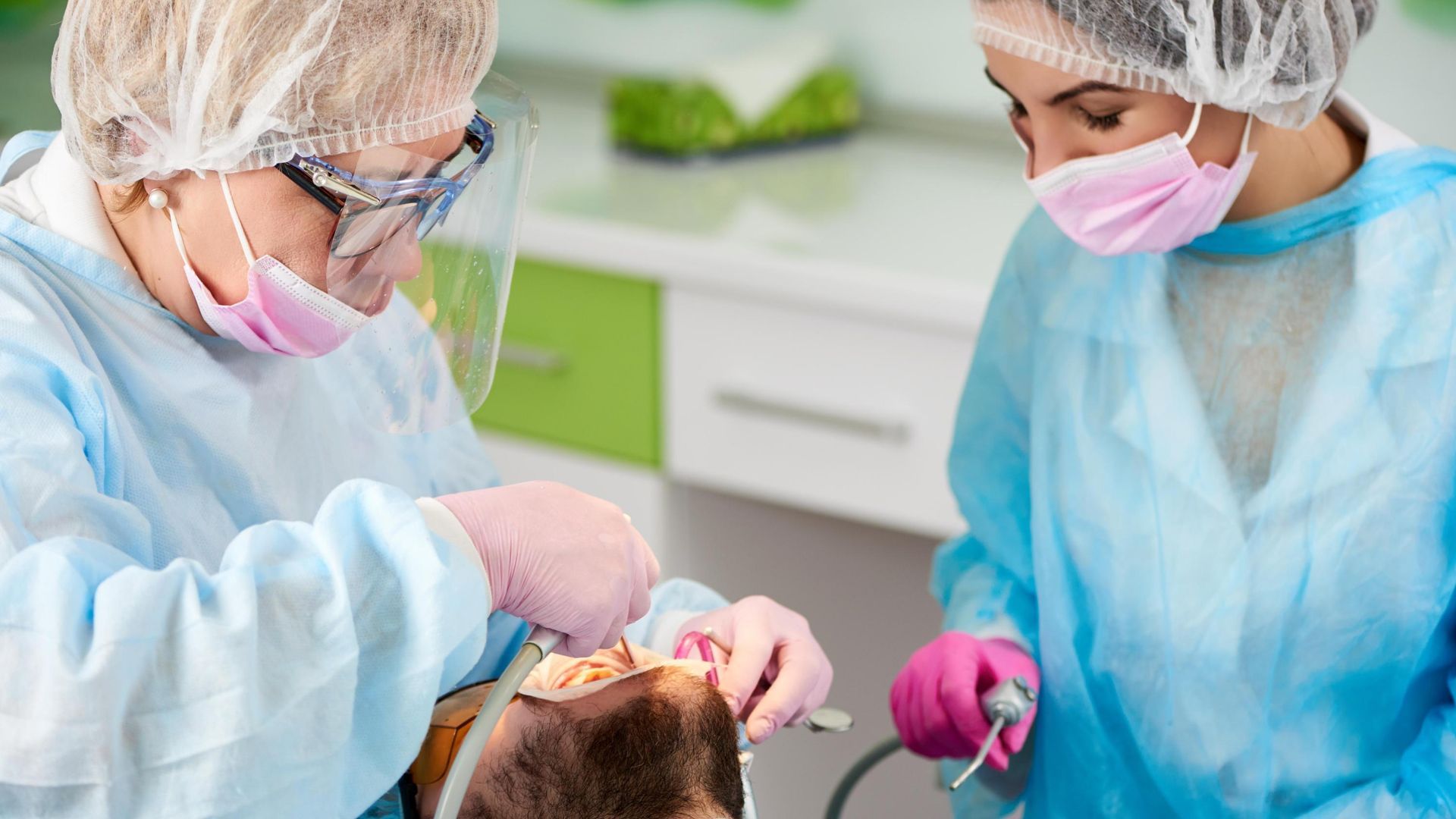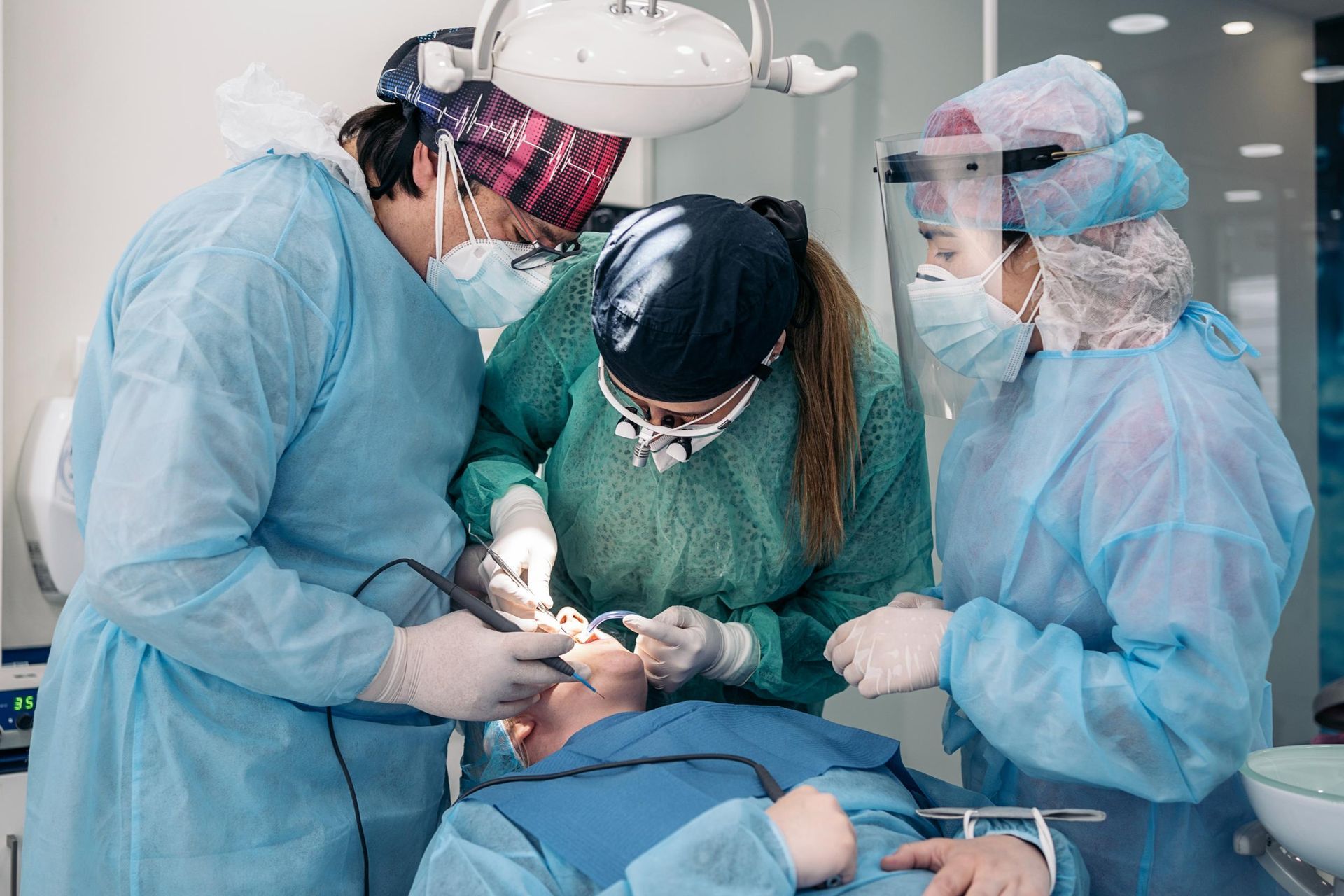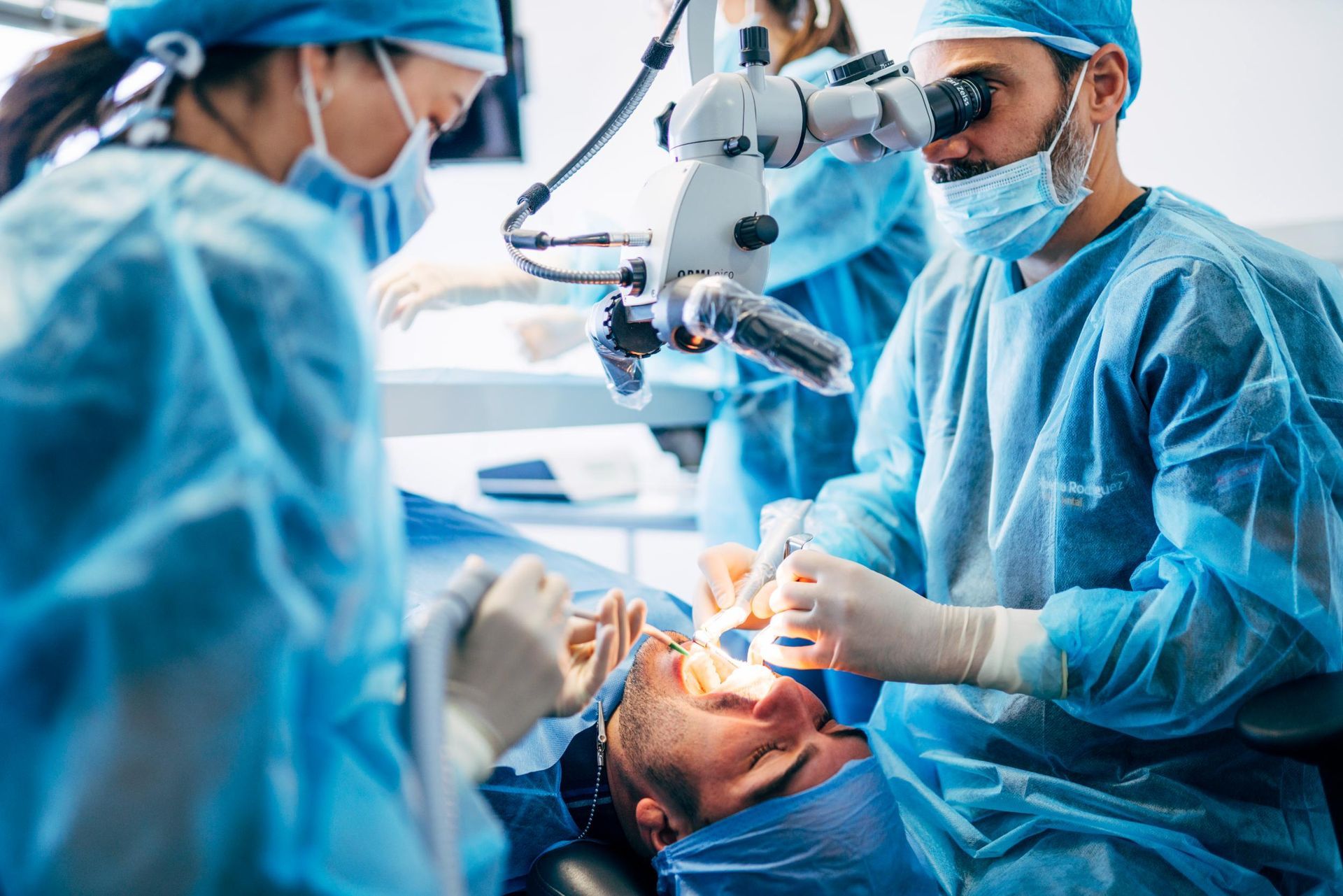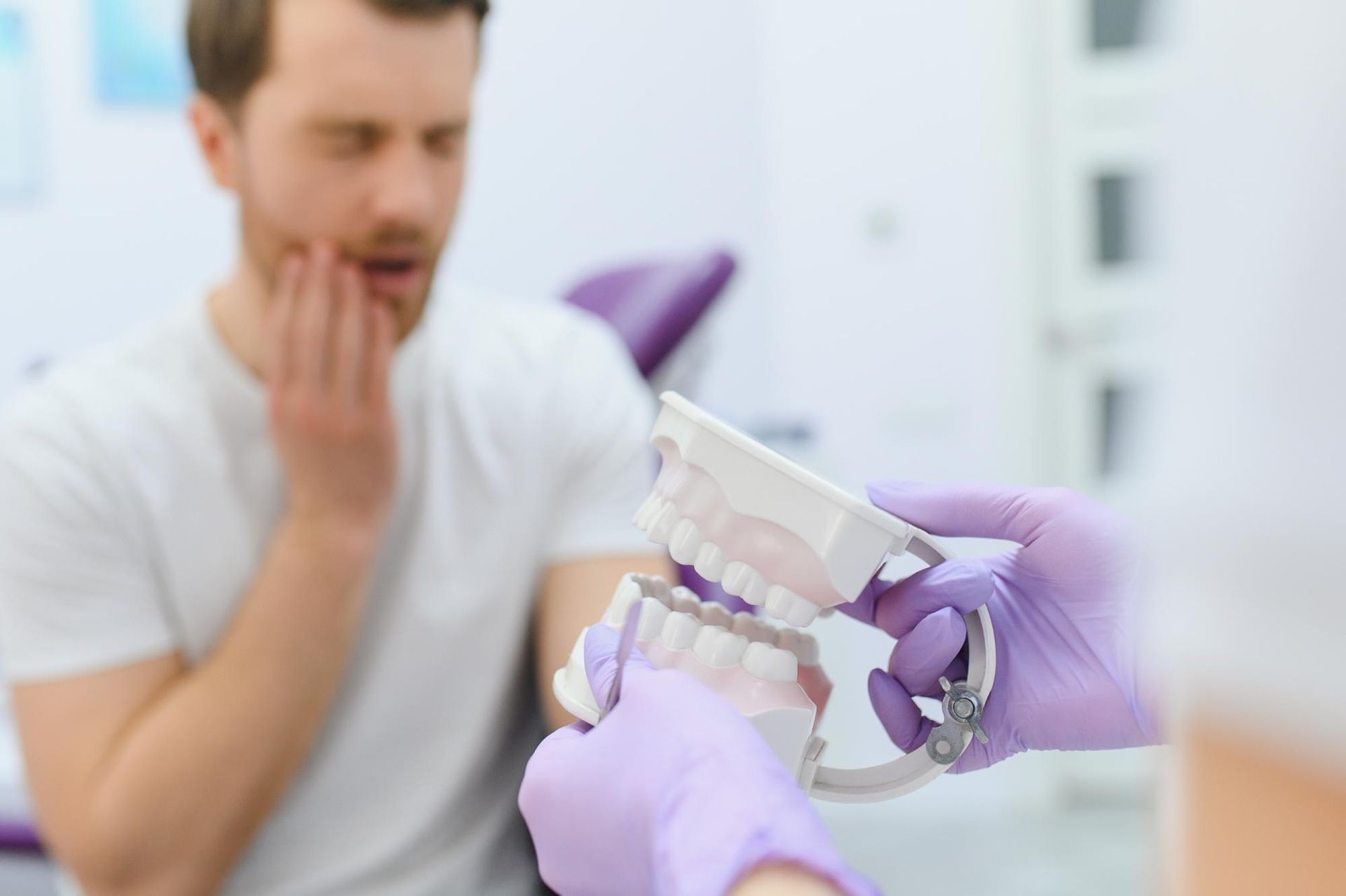Understanding Recovery Time for Dental Implant Surgery: A Complete Guide

How long is the recovery time for dental implant surgery? Typically, recovery can take from a few weeks to a few months. Factors such as your health, the number of implants, and how well you follow post-surgery care will affect your healing time. In this article, we detail the recovery stages and share essential tips to help you recover smoothly and effectively.
Key Takeaways
- Dental implants are effective replacements for missing teeth, utilizing a titanium post fused to the jawbone to ensure stability and function, with a success rate over 97%.
- Recovery time after dental implant surgery is influenced by factors such as individual health, the surgeon’s expertise, and the complexity of the procedure, with proper post-operative care being crucial for healing.
- Good long-term maintenance, including strict oral hygiene and regular dental check-ups, is essential for the longevity of dental implants, preventing complications like peri-implantitis.
Understanding Dental Implants
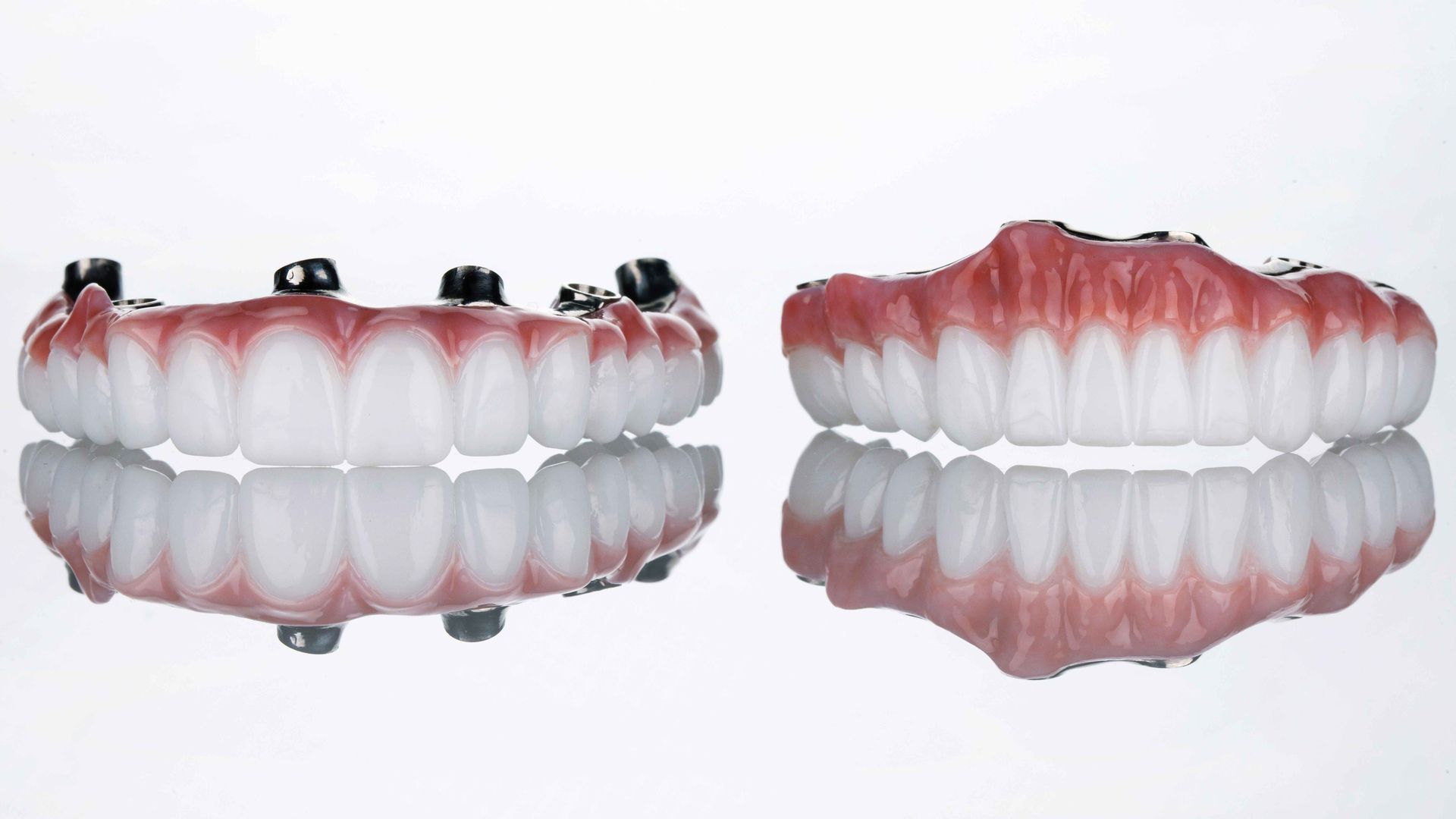
Dental implants are sophisticated replacement teeth anchored to the jawbone with a titanium post, replicating the function and appearance of natural teeth. They effectively treat both full and partial tooth loss, including cases of missing teeth, significantly enhancing oral functionality and aesthetics. Dental implant treatment comes in various types, including single-tooth implants, implant-retained dentures, and All-on-4 implants, catering to different needs and preferences.
Materials like metals, ceramics, and polymers enhance the durability and success of dental implants. Osseointegration, the process where the implant fuses with the bone, ensures stability and longevity, with a success rate exceeding 97% over ten years. Compared to traditional dentures, implants reduce sensitivity in surrounding teeth and provide a more comfortable and natural-feeling solution.
Bone density and shape are key anatomical factors for successful dental implant placement. The implant process is carefully planned to address these considerations, ensuring a positive outcome. With advancements in implant dentistry, most dental implants provide a reliable and long-lasting solution for tooth replacement.
Factors Influencing Recovery Time
Recovery time after dental implant surgery is influenced by several factors, including individual health. Younger patients and those without pre-existing conditions often recover faster. Adequate bone mass and density are also essential for effective bonding of the implant with the jawbone.
The expertise of the dental surgeon is crucial. A skilled surgeon can reduce trauma during the procedure, facilitating a quicker and smoother recovery. The type of procedure and the number of implants also impact the recovery period, with more extensive procedures or multiple implants potentially requiring longer healing times.
Knowing these factors helps in better preparation for recovery. Discussing your medical history and specific needs with your dental surgeon offers a clearer understanding of what to expect and how to manage the recovery process effectively.
Immediate Post-Surgery Period (0-24 Hours)

The first 24 hours after dental implant surgery are crucial for setting the stage for a smooth dental implant surgery recovery. Patients often experience minimal discomfort, which can be managed with prescribed pain medications. Using ice packs can further reduce pain and swelling, making the immediate post-surgery period more comfortable.
Adhering to your surgeon’s instructions is crucial. This involves eating soft foods to avoid irritating the surgical site and gently rinsing with a saltwater solution or antibacterial mouthwash to prevent infection. Activities that could dislodge the blood clot, like spitting, using straws, or smoking, should be avoided for proper healing.
Taking the day off work and resting can greatly aid recovery. Most patients can resume regular activities within a day, but it’s advisable to avoid physical exertion during this period. Following these guidelines ensures a smoother and more effective healing process.
Short-Term Healing Process (1-2 Weeks)
During the first two weeks after dental implant surgery, patients usually have a follow-up appointment to remove non-dissolving sutures. By the end of the first week, gentle brushing of the implant site can begin, promoting good oral hygiene without disrupting the healing process.
By the end of the second week, most patients feel significantly better, though some tenderness may persist. A gradual return to a varied diet is possible, but caution with hard and crunchy foods is still recommended to avoid stressing the implant.
While the initial healing process is generally complete by this time, the integration of the implant with the jawbone continues for several months. This period is crucial for the long-term success of the dental implant healing stages.
Long-Term Osseointegration Phase (3-6 Months)
The osseointegration phase, lasting three to six months, is critical for the stability and success of the dental implant. During this time, the implant bonds with the jawbone, providing a solid foundation for the permanent crown. Maintaining a strict oral hygiene routine supports this process.
Avoiding hard foods during this phase minimizes stress on the implant. Regular check-ins with your dental provider ensure any potential issues are promptly addressed, supporting successful osseointegration.
Following these guidelines can significantly enhance the outcome of the dental implant process, ensuring a durable and long-lasting solution.
Caring for Your Dental Implants During Recovery
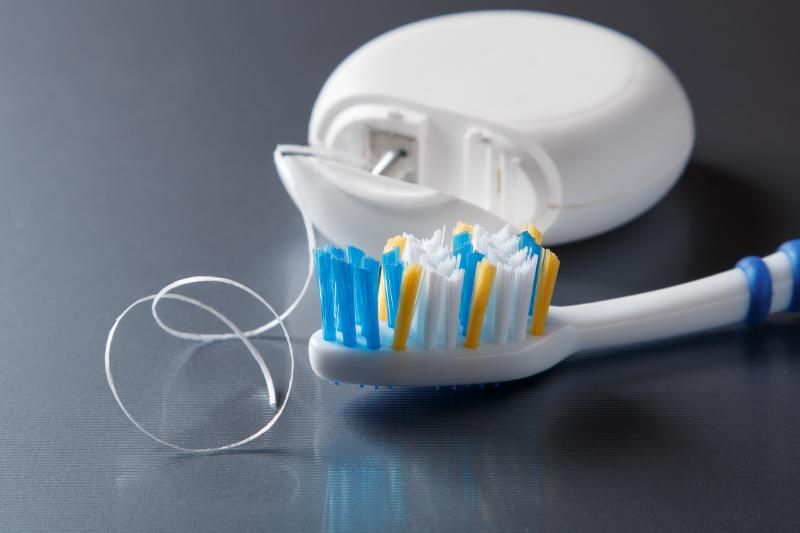
Proper care during dental implant recovery is crucial for the success of dental implants. A diet of soft foods that require minimal chewing is recommended to prevent discomfort and support healing. Staying well-hydrated also helps flush out toxins and promote recovery.
Good oral hygiene is essential. Here are some tips to maintain good oral hygiene:
- Gentle brushing and flossing around the implant site can prevent infection and promote healing.
- Use antibacterial mouthwash or saltwater rinses for added protection.
- A soft-bristled toothbrush is recommended to avoid damaging the implants and gum tissue.
By following these practices, you can ensure the longevity of your dental implants and overall oral health.
Avoiding smoking and alcohol consumption is essential, as these habits can hinder the healing process and increase the risk of implant failure. Following these care guidelines ensures a smooth and successful recovery.
When to Expect Permanent Crowns
Receiving permanent crowns after dental implants typically takes six to nine months. This period allows sufficient time for the implants to fully integrate with the bone, ensuring a stable foundation for the permanent prostheses. During this time, patients will wear a temporary healing prosthesis.
The implant abutment, which connects the implant to the crown, is usually placed after one to two weeks of healing. After this initial healing, the permanent prosthesis is attached, finalizing the dental implant procedure.
After the placement of the permanent crowns, patients may initially experience tender gums but will soon be able to eat normally and enjoy the full benefits of their new teeth. This final step completes the dental implant process, restoring both function and aesthetics.
Signs of Successful Healing vs. Complications
Successful healing of dental implants is marked by the stability of the implant and the absence of pain or discomfort. However, vigilance for signs of complications is crucial. Persistent symptoms like swelling, warmth, or discharge around the implant site may indicate an infection and require immediate attention.
Gum recession around the implant is another potential complication that should be evaluated by a dentist. If any of these symptoms occur, seeking professional advice promptly is essential to prevent further issues.
Recognizing the signs of successful healing and potential complications allows patients to take proactive steps to ensure the long-term success of their dental implants.
Tips to Speed Up Recovery
Avoiding smoking is crucial to speed up recovery after dental implant surgery, as it can delay healing and increase the risk of implant failure. Smoking negatively impacts the healing process by increasing the risk of infection and bleeding.
Rest is vital for healing. Listening to your body’s signals and taking time to rest can significantly aid recovery. Ice packs can help reduce swelling and provide pain relief, contributing to a faster and more comfortable recovery.
Long-Term Maintenance for Dental Implants
Long-term maintenance is crucial for the durability of dental implants. Good oral hygiene practices, including twice-daily brushing and daily flossing, help prevent complications like peri-implantitis, which can lead to inflammation and bone loss.
Regular dental check-ups, ideally every six months, are important to monitor the health of the implants and perform
professional cleanings. These visits allow the dentist to catch potential issues early and ensure the longevity of the implants.
Using an antiseptic mouthwash designed for dental implants can help reduce bacteria and prevent plaque buildup, further supporting long-term oral health. With proper care, dental implants can last a lifetime, providing a reliable solution for tooth replacement.
Summary
In summary, understanding the recovery process for dental implants is vital for ensuring their success and longevity. From immediate post-surgery care to long-term maintenance, each stage requires specific attention and care. By following the guidelines and tips provided, patients can enjoy the full benefits of their dental implants.
Remember, the key to successful healing lies in following your surgeon’s instructions, maintaining good oral hygiene, and attending regular dental check-ups. With these practices, dental implants can provide a durable and aesthetic solution for replacing missing teeth.
FAQ
Frequently Asked Questions About Dental Implants Recovery
Share This Blog




